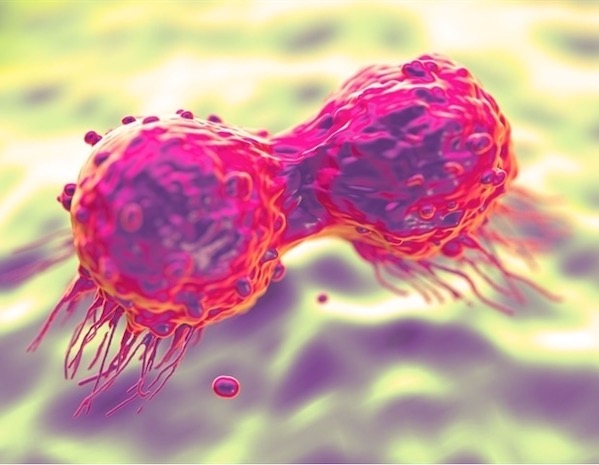Study may help advance data on oncolytic adenovirus mediated double suicide-gene therapy for high-grade brain tumors
June 10, 2023
Source: drugdu
 257
257

Researchers in the Hermelin Brain Tumor Center at Henry Ford Health are leading a Phase I clinical trial studying the maximum tolerated dose of an oncolytic adenovirus, a mutated virus engineered to selectively replicate in and destroy cancer tissue, in combination with fractionated stereotactic radiosurgery among patients who are undergoing resection of a recurrent high-grade astrocytoma brain tumor.
Tobias Walbert (M.D., Ph.D., principal investigator of the study and co-director of the Hermelin Brain Tumor Center at Henry Ford Health) said, "The participants in this study have progressive high-grade astrocytoma as well as glioblastoma, and are scheduled to undergo repeat surgery. After the removal of as much tumor tissue as possible, a modified oncolytic adenovirus is injected into the wall of the resection cavity and any residual tumor tissue. The goal of this study is to determine the maximum tolerated dose of the injected adenovirus, which is engineered to selectively replicate in and destroy cancer tissue."
This treatment is combined with a combination of oral 5-fluorocytosine and valganciclovir prodrug therapy, which are designed to only become toxic once they are inside tumor cells. This is known as "suicide-gene therapy," as these prodrugs cause the tumor cells to self-destruct. Following the surgery to remove as much tumor tissue as possible, patients will be treated with fractionated radiosurgery, which is a process in which the total dose of stereotactic radiation is divided into several doses administered to the patient's remaining brain tumor tissue on separate days of treatment.
"This study will help advance medical research data on oncolytic adenovirus mediated double suicide-gene therapy in patients with high-grade astrocytoma," said Farzan Siddiqui, M.D., Ph.D., co-investigator of the study and radiation oncologist at Henry Ford Health. "Gathering data on the maximum tolerated dose in combination with fractioned stereotactic radiosurgery will be essential to understanding the full potential therapeutic benefit to patients."
When a cancer cell self-destructs, the activated prodrug inside it may be passed on to neighboring tumor cells. This is known as a "bystander effect," and it may allow a single infected cancer cell to not only destroy itself, but also several other cancer cells around it. Additionally, when cancer cells self-destruct in this manner, they may attract immune cells that work to clear the body of dead and dying cells. If many cancer cells self-destruct at once, it may potentially provoke an immune system response against any remaining tumor cells.
Since 1993, Henry Ford's Hermelin Brain Tumor Center has been recognized by the National Cancer Institute (NCI) as a national leader for delivering leading brain tumor therapies. Henry Ford was among a select group of the nation's centers, and the only one in Michigan, chosen to participate in the NCI-funded Adult Brain Tumor Consortium and Brain Tumor Trials Collaborative. As a major contributor to The Cancer Genome Atlas, a landmark cancer genomics program that molecularly characterized over 20,000 primary cancers, the Hermelin Brain Tumor Center at Henry Ford has the third largest tumor bank in the world with more than 3,000 brain tumor tissue samples and corresponding data for treatments and outcomes.
Reference:
https://www.news-medical.net/news/20230608/Study-may-help-advance-data-on-oncolytic-adenovirus-mediated-double-suicide-gene-therapy-for-high-grade-brain-tumors.aspx
Read more on
- The first subject has been dosed in the Phase I clinical trial of Yuandong Bio’s EP-0210 monoclonal antibody injection. February 10, 2026
- Clinical trial of recombinant herpes zoster ZFA01 adjuvant vaccine (CHO cells) approved February 10, 2026
- Heyu Pharmaceuticals’ FGFR4 inhibitor ipagoglottinib has received Fast Track designation from the FDA for the treatment of advanced HCC patients with FGF19 overexpression who have been treated with ICIs and mTKIs. February 10, 2026
- Sanofi’s “Rilzabrutinib” has been recognized as a Breakthrough Therapy in the United States and an Orphan Drug in Japan, and has applied for marketing approval in China. February 10, 2026
- Domestically developed blockbuster ADC approved for new indication February 10, 2026
your submission has already been received.
OK
Subscribe
Please enter a valid Email address!
Submit
The most relevant industry news & insight will be sent to you every two weeks.



